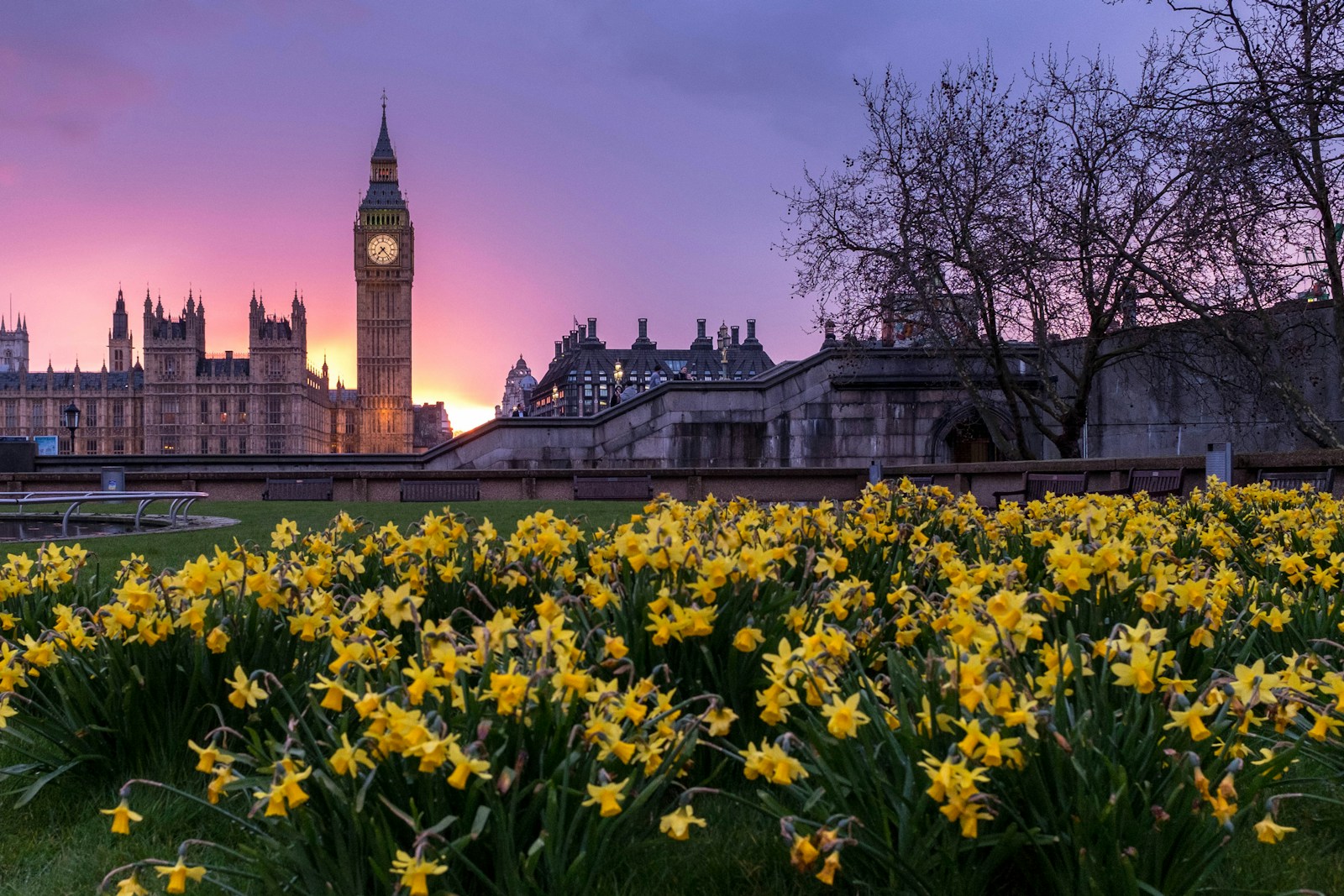The OBR delivered a big blow to Labour’s hopes of meagre economic growth, but Chancellor Rachel Reeves’ failure to focus on green industries is more worrying.
Change. It’s a word we’ve heard almost non-stop since Sir Keir Starmer launched an election manifesto that promised different times were coming. Better. Improved. And, ideally, insulated.
Nine months or so after taking control of Downing Street in a landslide vote that took Labour into power, and there has been plenty of change. Although quite how much we can attribute to the party is difficult to answer.
Today, Chancellor Rachel Reeves delivered her non-budget to the House of Commons in the form of a spring statement we’ve heard almost annually since the banking crisis 2008. There’s not much money, we need to claw back the budget deficit and that’s going to mean some pain for the public purse. Not to mention the public. Austerity 2.0 would be one word to describe it, if this weren’t the 17th year we’ve been told about unavoidable cuts.
Of course, news of reduced spending power in the public sector came a week or so ago, along with a doubling down on that other rallying cry: growth. According to the Office of Budget Responsibility [OBR], the UK is now forecast to expand its economy at just 1% this year, a woeful number dwarfed by almost every other number that exists, including the previous estimate of a still-poor 2%. This mirrors similar drops in other major national economies, and today’s report does state that there is actually now more growth expected every year from 2026 onwards as a result of Labour’s fiscal policies.
‘I am not satisfied with those numbers, and that is why we on this side of the house are serious about taking the action needed to grow our economy,’ said Reeves, before outlining a ‘£14billion repair job’. Necessary to meet Labour’s own fiscal rules, she proceeded to cite a ‘leaner government’ working more efficiently as a potential £3.5billion saving by 2030 and reiterated the need for controversial welfare cuts, which the OBR has already warned may not deliver the kind of cashback the government is hoping for.
The Chancellor’s first major speech since the election comes at a very difficult time for British finances. Alongside its European neighbours, the UK has received a clear message from the US about the need to shore up defence spending and stop relying on Washington D.C. for protection from rogue countries like Russia. Upgrading Trident alone – Britain’s submarine-based nuclear deterrent – is predicted to cost £205billion over its lifetime. This is before we come to urgent overhauls to land, air and other seafaring divisions, vehicles and troops as a new security environment takes form.
Wider uncertainty and instability largely driven by conflict in Ukraine, the Middle East and the new White House administration’s bonfire of vanities and stable economic policies is causing havoc in the global markets and borrowing costs have been among the fiscal areas moving in the wrong direction as a result. For the UK, that means an inherited near-bankruptcy, passed from the Conservatives to Labour, and almost 15 years of public service neglect, now look even less surmountable because debt repayments are rocketing.
But not all sectors are in decline. Last month, we reported on a new analysis which showed the net zero economy – renewable energy, carbon capture, tree planting, to name but three specific areas – was booming, with 10% year-on-year expansion at a time when the overall economy could barely manage 3%.
Even more exiting are the facts this is largely being achieved by small and medium sized businesses based domestically and investment into these projects leaped 47% in 2024. Not forgetting that much of the activity is happening in areas earmarked for the failed Levelling Up agenda promoted by the last government.
With this in mind, Reeves failed to emphasise the role net zero might play in balancing the books, which only casts Labour’s weak environmental track record in even worse light. Especially given her message about private funding stepping in to fill financing gap that could now jeopardise a number of major infrastructure projects from getting off the ground. But don’t take our word for it.
‘There is a fantastic opportunity for government to embrace the benefits of investing in the green economy, rather than positioning the environment as a barrier to growth. Recent analysis published by the CBI showed that the net zero sector grew faster that the rest of the UK economy and that jobs supported by net zero businesses were 38% more productive than the UK average,’ says Martin Baxter, Deputy CEO at the Institute of Environmental Management and Assessment [IEMA].
‘Net zero, nature restoration and the circular economy are all areas in which policy and investment gaps remain and the headlines from the Chancellor’s Spring Statement have done very little to address this,’ he continued. ‘Rather, the Chancellor’s comments on the government’s planning reforms have simply compounded fears that the natural environment will suffer as a consequence. This is enormously frustrating as we know that we can deliver both the housing and infrastructure that we need, whilst restoring and enhancing nature at the same time.’
Of course, it’s not quite so simple. The previous government’s legacy isn’t just defined by the country being financially broke – it’s also about serious shortages in highly skilled specialists in a number of significant fields. Including industries related to, or at the centre of net zero. While this was recognised in the statement, according to Beatrice Barleon, Head of Policy and Public Affairs, EngineeringUK, Downing Street must ‘go further’ on this as soon as possible and prioritise investment in training programmes and STEM education.
‘The Chancellor’s recognition of the importance of investing in skills through a new training package for up to 60,000 new construction workers is welcome,’ Barleon explains. ‘Government must recognise its role in training the next generation and look to move towards a new model of directly funding apprenticeships for 16- to 18-year-olds to help reverse the decline in uptake of apprenticeships for this age group… We look to government to reverse recent cuts to Continuous Professional Development for STEM teachers and continue to support outreach programmes reaching into schools.’
‘The Chancellor is in an unenviable position with events at home and abroad creating a marked shift in the economic conditions,’ says Neil Sansbury, UK Managing Director at global engineering and sustainability consultancy Ramboll. ‘The recognition of the important role that capital projects and the green economy have to play in spurring growth through additional funding of £2bn per annum is welcome. It has also been encouraging to see the Government take proactive steps, not least through the Planning & Infrastructure Bill, which had its Second Reading this week.’
Many analysts have echoed these fears, with Griff Thomas, Managing Director at renewable and electrical training provider G-Tec, nodding to 35,000 vacancies across the construction sector and ’employers reporting that over half’ cannot be filled because of the lack of qualified professionals. Meanwhile, others have pointed to the risk of leaving vulnerable people out in the cold by cutting back support for insulation and domestic energy improvements.
‘At the upcoming Spending Review, ministers must protect and deliver on manifesto commitments like Great British Energy and the Warm Homes Plan — cutting these areas would leave the UK less secure, and expose households and industry to higher bills,’ says Will Walker, UK Policy Lead at climate solutions charity Ashden. ‘With the UK’s green economy growing three times faster than the rest of the economy and the global economy facing potential 50% GDP losses this century from climate impacts, ambitious investment in homegrown clean energy, warm homes and nature is vital to protect prosperity and security.’
Image: Ming Jun Tan / Unsplash
More on net zero:
















